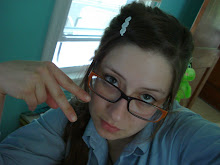Upon looking for a subject to write about, I was trying to find a subject that I was not familiar with, and something that I could reasonably argue for on both sides. I went to a Google search and typed in “unpopular environmental issues”. The first site I went to was www.greenfudge.org, here they had several issues, but the one I found to be most interesting was light pollution. It sounds simple enough, but then I started to think about my daily interactions with light and how nearly every person in the world is directly affected by some form of light or another. It seemed quite plausible for me to be able to explore this issue on many different plains. `
The first information I was exposed to was negative. According to Wikipedia there are many negative effects that can stem from light pollution. Some of these effects include: increased headaches, worker fatigue, stress, decrease in sexual function, increased anxiety, increase in blood pressure, and effects on melatonin levels. Most of these did not come as a big surprise to me; we have all been in a well-lit room for way too long and gotten a headache. But something surprising to me was that there are links to defective melatonin levels and artificial light. There are also links to melatonin levels and breast cancer. Is our increased exposure to artificial lights having some bearing on breast cancer statistics? The more I looked into the issue the more negative issues I found based on light pollution. The fact that light is actually a necessity for so many people makes this issue intriguing to me. Of course there is the excessive use of light, but can you imagine a highway without lights? Can you imagine an airport without lights? Can you imagine someone performing surgery without lights? This is where the real research will begin. I will be trying to come to a comfortable conclusion (for myself) as to what is deemed necessary and unnecessary when discussing light pollution. When is there too much light and what can we do about it?
Books
1. Mizon, Bob. Light Pollution: Responses and Remedies. Singapore: Springer-Verlag London Limited, 2002. Print.
2. Phillips, Derek. The Lit Environment. Woburn, MA.: Architectural Press, 2002. Print.
Magazines
1. BBC, . "Light Pollution Overwhelms Wildlife's Navigational Abilities." Civil Engineering issue 6, 2009: 33. Print.
2. Naege, Robert. "One Man's Battle Against Light Pollution." Sky & Telescope issue 5, 2009: 8. Print.
3. Turk, Cliff. "Report of the Dark Skies Section." Monthly Notes of the Astronomical Society of Southern Africa 10 September 2009: 177. Print.
4. Gallina, Carla. "Light Done Right." Library Journal 2009: 1-5. Print.
Websites
2. Klinkenborg, Verlyn. "Light Pollution." National Geographic.com. November 2008. National Geographic, Web. 24 Jan 2010. http://ngm.nationalgeographic.com/2008/11/light-pollution/klinkenborg-text.
3. http://www.astrosociety.org/education/publications/tnl/44/lightpoll.html
4. Quandt, Matt . "The dark night goes quietly." Astronomy. Web. 24 Jan 2010. http://www.astronomy.com/asy/default.aspx?c=a&id=2249.
5. http://en.wikipedia.org/wiki/Light_pollution.
6. www.greenfudge.org/2009/11/05/unpopular-environmental-issues-we-should-care-about.

wow. This is definitely a less well-trod issue. I notice that one of your sources discusses the effect on wildlife. Of course, astronomers are always incensed by light pollution. I had no idea that it is responsible for all my problems.
ReplyDeleteI wonder if there is anything about the quality and effects of the light of compact florescent bulbs which we are all switching to eventually. I already have, pretty much. The light is different. Colder. I feel cold.